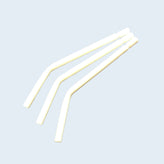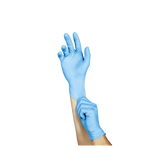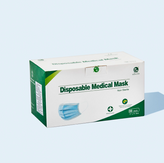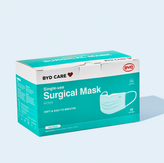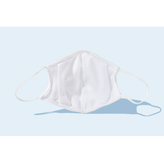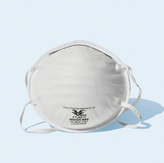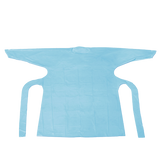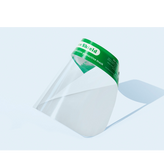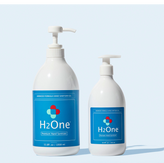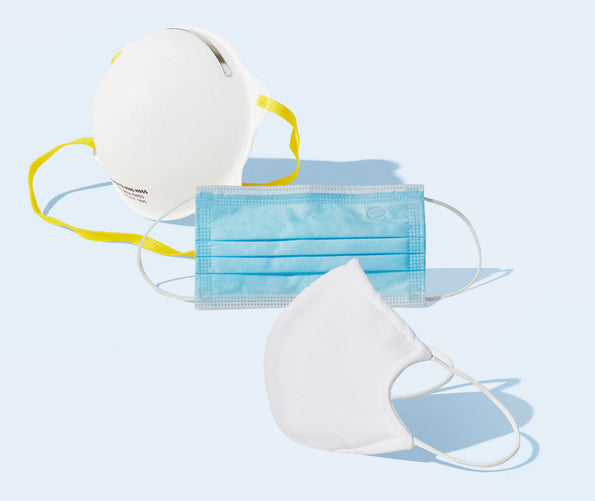Is it time to upgrade?
Winter’s here and case counts are up. If you’re not a medical professional but you’ve considered upgrading your mask or gifting a professional-level mask to a loved one, then you’re not alone. This is a user’s guide for when and where it may be appropriate to wear an N95 as opposed to a 3ply mask or a cloth mask.
Cloth, 3ply, or N95?
Let’s be clear that wearing any type of mask, such as cloth or 3ply, is safer than wearing nothing at all. Also, cloth masks have proven to have decent efficacy so long as they meet certain criteria, such as having three layers with tightly-woven fabric, and a fit close to the face. 3ply masks are made of materials that filter particles and resist fluids to varying degrees - but they typically fit with gaps around the face.
Meanwhile, an N95, also called a respirator, is a mask approved by the CDC’s National Institute for Occupational Safety and Health that medical and industrial professionals use to block out at least 95% of airborne particles. Compared to cloth masks, disposable 3ply masks are made out of material that filter more particles, but aren’t meant to tightly fit to the face. N95s do an even better job of protecting you from inhaling harmful particles in the air because they closely fit the face (grab a Fit Kit to find the one that fits your face the best).
So - when is it better to use an N95 than 3ply or a cloth mask? If you are going to be in an area where you cannot maintain a six-foot distance from others or where air circulation may be limited, an N95 is a great choice.
On the other hand, 3ply or cloth masks will work just fine if you are going to be out-and-about in a sparsely populated area where you can maintain six feet of social distancing (particularly outdoors). Using an N95 won’t hurt in those scenarios, but it just may not be necessary.
Examples of when to use an N95:
- Grocery shopping in a crowded store
- Traveling through the airport or plane
- On public transportation
Examples of when to use a 3ply or a cloth mask:
- Exercising outdoors in non-crowded areas
- Shopping at an outdoor farmers market
- Running other errands
Getting the most out of your N95
An N95 is a disposable mask originally designed for one-time use. It is intended to be used for a couple hours at a time and then discarded. That said, those of us outside of the medical world who have been wearing them around town can realistically get a few wears out of them before the mask weakens (read here about how N95s work). You’ll know your mask has reached its limit when the straps break, nose clip loosens from readjusting, it becomes too ragged, or oils and makeup from your face soil the mask meaningfully (not to mention it gives you maskne). As much as possible, avoid fiddling with your mask or readjusting it (getting one that fits well to begin with helps with that) as that may transfer bacteria and particles to the mask. Following the WHO’s guidelines on how to take a mask on and off are a great way to keep your mask clean and yourself protected.
We do not recommend trying to wash or microwave your N95; most are not water resistant and they aren’t guaranteed to be decontaminated with a microwave. Instead, we recommend getting a few to use per month, keeping them clean and separate in a bag between uses, and disposing of them regularly.
N95s can run anywhere from $2-$5 each and often must be bought in boxes of typically 20 or more, because they are packaged for industrial consumption (generally the smallest amount you can buy is 20 at a time in a box). The WHO recommends that anyone over the age of 60 wear a medical mask, so grabbing some for your elderly neighbor may be appreciated!
Shouldn’t we save N95s for doctors?
As providers to the medical and government sector, we believe that we are no longer experiencing a shortage of N95s (see our piece here).
More coverage on mask usage
Some great articles have been written to provide more guidance on cloth masks versus other options. We recommend the following:
CDC: Effectiveness of Cloth Masks
NPR: A User’s Guide To Masks: What’s Best At Protecting Others (And Yourself)

